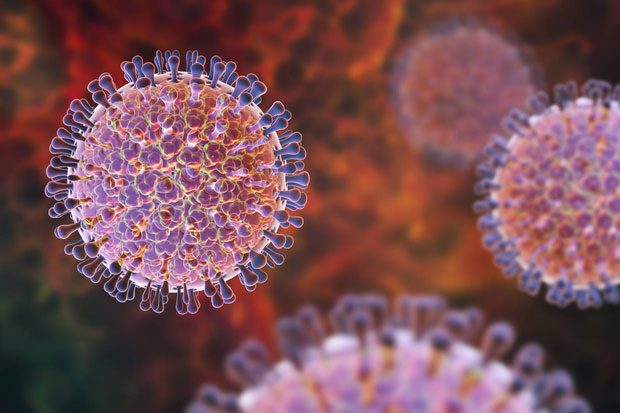Rota virus has a total of 7 types, labeled A, B, C, D, E, F, and G. Among these, type A is the most common and easily transmissible to humans, followed by types B and C. Most children will contract this virus one or more times. Adults can also be affected, but symptoms are generally milder.
The primary transmission route of the Rota virus is fecal-oral. Specifically, you can become infected if you come into contact with the feces of an infected person or contaminated objects and then touch your mouth. Infection can also occur through consuming food or drinking water contaminated with the virus.

The primary transmission route of the Rota virus is fecal-oral.
8 Common Symptoms of Rota Virus Infection
The course of Rota virus illness typically lasts 6 – 7 days. During this time, fever lasts for 1 – 2 days, vomiting for 2 – 3 days, and diarrhea for about 5 days. These symptoms usually occur together, and severe diarrhea can lead to death due to dehydration.
In tropical countries like ours, the Rota virus is active year-round, especially during transitional seasons with high humidity and erratic weather conditions like we are experiencing now. Therefore, it is crucial to take children to the hospital if they exhibit any of the following symptoms:
- Diarrhea accompanied by fever: infants under three months with a fever above 38 degrees Celsius, and infants aged 3 months to three years with a fever above 39 degrees Celsius.
- Continuous vomiting, inability to eat or drink.
- Severe abdominal pain that does not subside.
- Signs of dehydration such as dry mouth, excessive thirst, crying without tears, etc.
- Infrequent urination or inability to urinate for over 4 hours.
- Poor mental state or lethargy.
- Vomiting or stool that is coffee-colored, suspected to contain blood.
- Some children may also have a persistent cough combined with a runny nose and sore throat.
6 Ways to Prevent Rota Virus
Despite advancements in medicine, there is still no specific treatment for Rota virus. Therefore, it is essential to prevent infection early through the following 6 methods:

It is advisable to administer Rota vaccine prophylactically to children from 2 months of age.
- Vaccination: According to WHO recommendations, Rota vaccine should be administered prophylactically to children from 2 months of age.
- Regular attention to personal hygiene, washing hands before meals, especially instilling the habit of handwashing in children. Parents should also wash their hands promptly after assisting their children with bowel movements.
- Ensure water source hygiene, avoid consuming raw or undercooked meats, and wash fruits and vegetables thoroughly before eating them raw.
- Avoid close contact with individuals suffering from acute gastroenteritis or diarrhea.
- Children’s toys and personal items should be regularly disinfected.
- Manage feces properly, ensuring good disposal (using septic tanks, two-chamber toilets), and do not use fresh feces as fertilizer for plants or fruits.
Additionally, it is advisable to maintain a balanced diet, a healthy lifestyle, and encourage exercise from a young age to strengthen children’s immune systems. This will help reduce the risk of infection and the harmful effects of the Rota virus.


















































